HBI Welcomes New Members to our Board of Advisors
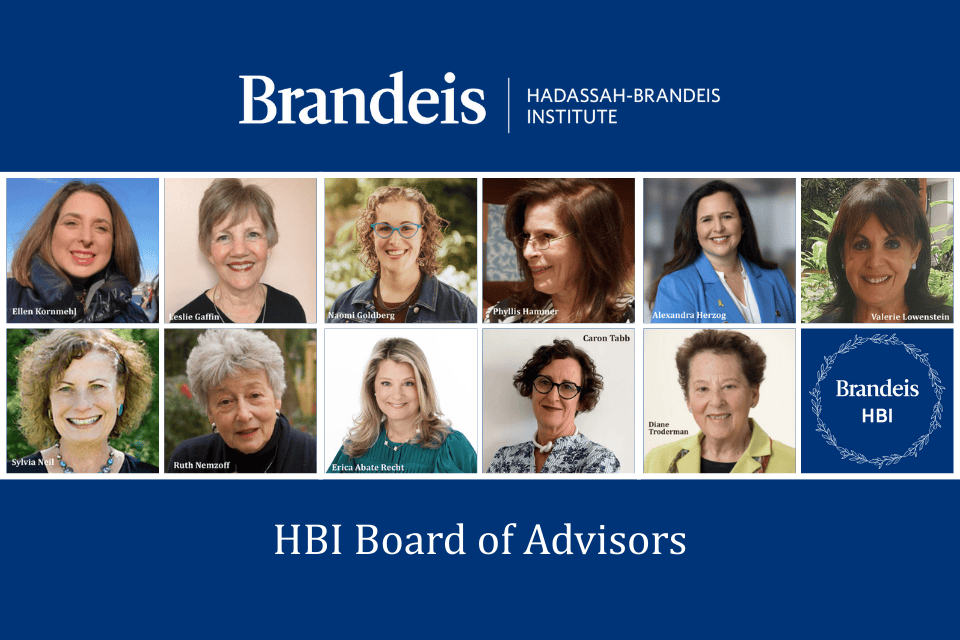
At the fall 2025 meeting of our Board of Advisors, HBI was delighted to welcome a new cohort who will bring a wide range of expertise to our work and to bid farewell to two longtime board members for their many contributions over the years.
“This marks an important transition point in the life of the HBI Board “ said Dr. Lisa Fishbayn Joffe, Shulamit Reinharz Director of the HBI. “Our board members provide invaluable advice on strategy, organization and governance, act as ambassadors for our work and provide financial support for our core programs. I’m grateful to our departing board members who have helped HBI grow and thrive and I am excited to work with the new cohort of members who are joining us this year.”
“We are saying goodbye to two members who have been committed to advancing HBI’s scholarship fostering women’s opportunity to examine Jewish identity and practice through the lens of gender. Their unique perspectives allowed valuable contributions to the direction of our initiatives,” said Dr. Ellen Kornmehl, chair of HBI’s Board of Advisors.
The Hadassah-Brandeis Institute Board of Advisors is comprised of individuals with a deep interest in scholarship and activism on the status of Jewish women and on the relationship between Jewishness and gender. Members bring to bear their knowledge and expertise based on their experience as philanthropists, academics, university administrators, business professionals, artists, activists, writers, lawyers, and clergy.
“I’m so grateful to our two departing board members who have shared their wisdom  with us for decades,” said Joffe. Talia Carner, an Israeli American novelist who writes historical fiction exploring the lives of Jewish and Israeli women, is stepping down after serving on the board for 24 years because “it always made me very proud to be part of HBI.”
with us for decades,” said Joffe. Talia Carner, an Israeli American novelist who writes historical fiction exploring the lives of Jewish and Israeli women, is stepping down after serving on the board for 24 years because “it always made me very proud to be part of HBI.”
Carner explains that her commitment to HBI was affirmed after October 7. She saw that many people were searching for what it means to be Jewish and how to learn more. She believes HBI is positioned to meet that need for connection and learning.
Dr. Tobe Levin, an expert in the human rights of women, is leaving the board after nine years. She too explains that she has been moved by the mission of HBI. “To elevate the 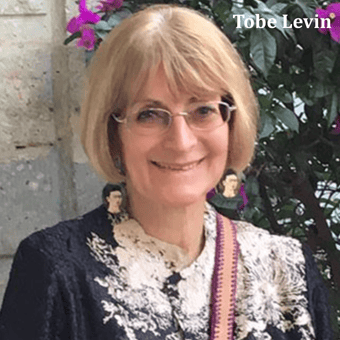 presence of Jewish women in scholarship seems like a superior goal to me and I'm grateful for the time I spent at HBI and the work I did,” she said.
presence of Jewish women in scholarship seems like a superior goal to me and I'm grateful for the time I spent at HBI and the work I did,” she said.
Levin marked the end of her term with a gift to Brandeis University to create the M. William Levin and Janice Metz Levin Research Awards on Gender and Jewish-Black Relations in memory of her parents. The award will be given annually as part of HBI’s Research Award Program.
“We were fortunate to have Talia Carner, an experienced author who has written about the Holocaust, and Tobe Levin, devoted to defending human rights, both generously giving their time to our Board. We are grateful for their guidance and work spreading awareness of HBI's important works and contributions to Jewish women's expression,” said Kornmehl.
The five new members joining the board cited varying reasons for their desire to serve, but echo similar themes. They appreciate the far reaching impact of HBI’s work, believe this moment is especially important, and want to help HBI’s work become more widely known.
Erica Abate Recht, ’95 (Women’s and Gender Studies and Politics), who brings legal 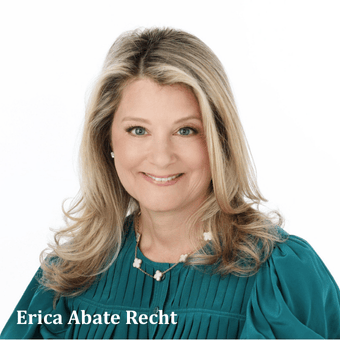 expertise and extensive non-profit experience to the Board, said “Women’s and gender issues have always needed our support, but particularly now given the current moment.”
expertise and extensive non-profit experience to the Board, said “Women’s and gender issues have always needed our support, but particularly now given the current moment.”
Abate Recht first got involved with HBI through the Boston Agunah Task Force, a research and advocacy initiative to assist women subjected to get-based extortion or get refusal, where she worked on legal research with HBI Director Lisa Fishbayn Joffe. “I like serving when there is a focus on women’s issues,” she said. With expertise in strategic planning and fundraising. Abate Recht hopes to raise the profile of HBI in the community.
Dr. Alexandra Herzog, MA ’07, PhD ’14, Director of the William Petschek Global 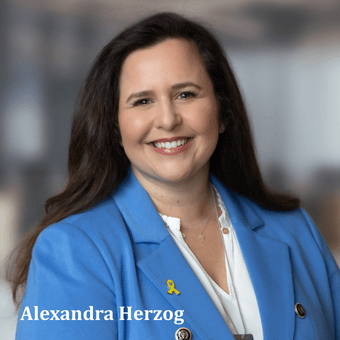 Jewish Communities Department American Jewish Committee, was drawn to HBI because of its “rare ability to bring rigorous scholarship and lived experience into meaningful dialogue.” Herzog wrote her PhD dissertation at Brandeis on modern Jewish literature and Yiddish literature, with a strong focus on gender, and she also completed a joint MA in Jewish Studies and Women’s and Gender Studies. “HBI sits at the exact intersection of these fields, offering an intellectual and communal home where questions of gender, Judaism, identity, and narrative are explored with both depth and purpose. HBI is not only an academic institute—it’s a catalyst for new ideas, a home for scholars, researchers, and artists, and a space where the complexities of Jewish women’s experiences are taken seriously and celebrated.”
Jewish Communities Department American Jewish Committee, was drawn to HBI because of its “rare ability to bring rigorous scholarship and lived experience into meaningful dialogue.” Herzog wrote her PhD dissertation at Brandeis on modern Jewish literature and Yiddish literature, with a strong focus on gender, and she also completed a joint MA in Jewish Studies and Women’s and Gender Studies. “HBI sits at the exact intersection of these fields, offering an intellectual and communal home where questions of gender, Judaism, identity, and narrative are explored with both depth and purpose. HBI is not only an academic institute—it’s a catalyst for new ideas, a home for scholars, researchers, and artists, and a space where the complexities of Jewish women’s experiences are taken seriously and celebrated.”
Naomi Goldberg, executive director of the Movement Advancement Project (MAP), an independent, nonprofit think tank that provides rigorous research, insight, and 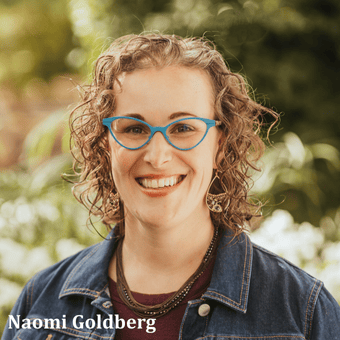 communications that help speed equality and opportunity for all, first came to HBI as an undergraduate participant in HBI’s Gilda Slifka Summer Internship Program in 2003. She describes the experience as a “pivotal moment” when she had the opportunity to “meet with scholars at HBI, learn more about organizations, work on a project of my own, and see what I am really interested in.”
communications that help speed equality and opportunity for all, first came to HBI as an undergraduate participant in HBI’s Gilda Slifka Summer Internship Program in 2003. She describes the experience as a “pivotal moment” when she had the opportunity to “meet with scholars at HBI, learn more about organizations, work on a project of my own, and see what I am really interested in.”
Goldberg returned to the Brandeis campus two summers ago to celebrate the 25th anniversary of the summer Internship program. “It was a reminder of how wonderful that summer was,” and she has remained in contact since, attending talks and learning with HBI. She also stayed connected to some of the other people she met at the reunion, presenting at an upcoming conference with Rachel Minkin, a former intern advisor. Being on the board of advisors is an opportunity for Goldberg to share her expertise on LGBTQ policy in Jewish settings, but to also share HBI with her cohort of LGBTQ Jews based in Ann Arbor, bringing new people into contact with the work of HBI.
After decades of volunteerism at Hadassah, the Women's Zionist Organization, Valerie Lowenstein, P ’06, became involved with HBI as a way to both share her expertise and 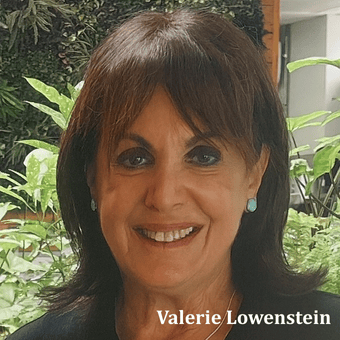 strengthen connections between HBI and Hadassah, the organization whose gift to Brandeis University helped to establish the institute in 1997.
strengthen connections between HBI and Hadassah, the organization whose gift to Brandeis University helped to establish the institute in 1997.
“At HBI, I can bring my skills from Hadassah, in development and my professional expertise as a nurse to see us develop a stronger partnership. Both Hadassah and HBI do a great job and I would like to see HBI expand on the latest research in women’s health, to include work Hadassah is doing treating abused women, and male and female soldiers with PTSD. I think that HBI has wonderful programs for Hadassah members.”
After a brief hiatus, Caron Tabb, an Israeli artist and philanthropist, is returning for her second term on the HBI board. “HBI is a place where nuance and sophisticated points of view are welcome, and a conversation starter as opposed to a conversation ender,” she said. Since 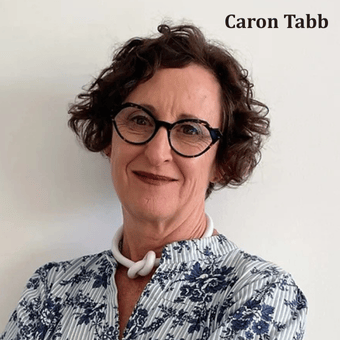 the watershed moment of Oct. 7, Tabb finds others making assumptions about her or “outcasting” her based on her biography. Her motivation to return to the HBI’s Board of Advisors as chair of the Arts Advisory Committee, is one way she is leaning into her community and supporting a research center that looks at issues of Jews and gender in all their complexity. Tabb adds, “HBI is doing really good work in elevating the modern Jewish voice on the shoulders of what came before. The programs, the art shows are very high caliber and there is so much research being done. I feel excited to attach my voice to that.”
the watershed moment of Oct. 7, Tabb finds others making assumptions about her or “outcasting” her based on her biography. Her motivation to return to the HBI’s Board of Advisors as chair of the Arts Advisory Committee, is one way she is leaning into her community and supporting a research center that looks at issues of Jews and gender in all their complexity. Tabb adds, “HBI is doing really good work in elevating the modern Jewish voice on the shoulders of what came before. The programs, the art shows are very high caliber and there is so much research being done. I feel excited to attach my voice to that.”
More information on HBI’s Board of Advisors here.